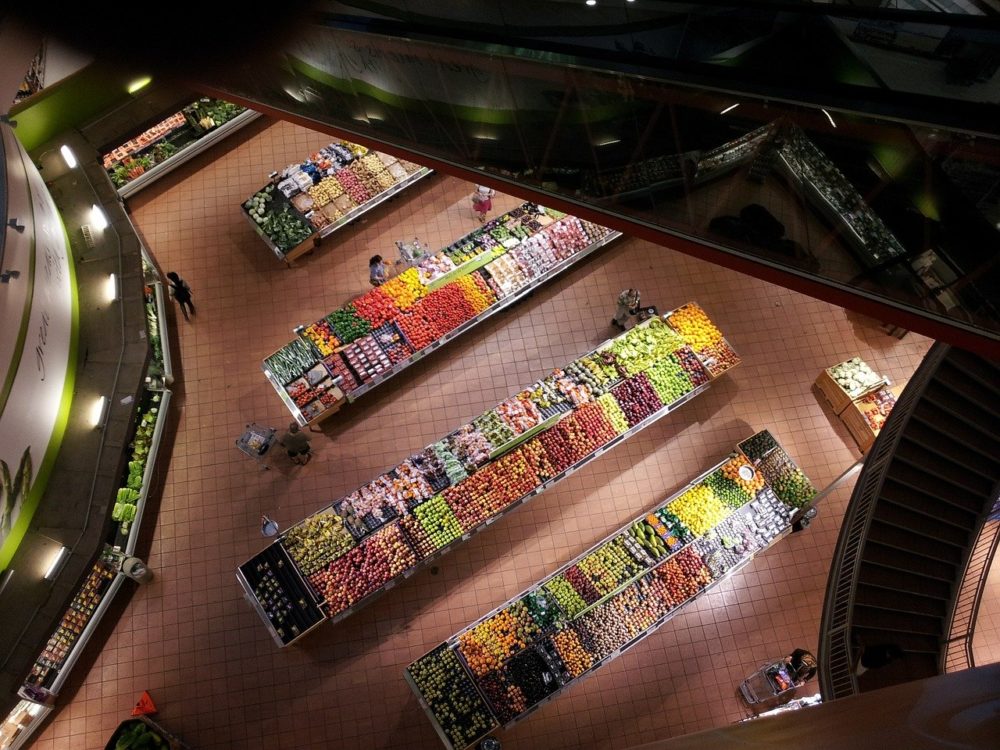For students and a number of adults, the COVID-19 outbreak has led to a shelter in place order, enforcing learning and work from home. For essential workers, however, this luxury has not been afforded.
Each day, groups of brave teenagers and adults wake up to go to work, risking their health so that others can have basic necessities. To shine a spotlight on these hardworking and selfless individuals working in grocery and delivery fields, Talon has made an effort to interview them about their experiences during this pandemic.
Maria Facundo, the mother of sophomore Sofia Facundo, falls into this category. She is employed by Amazon Gateway, downloading and uploading planes. When asked whether she fears getting infected at work and what precautions she and her coworkers are taking to stay safe, Facundo was very straightforward.
“We have always been required to wear gloves [and have] been doing the six feet social distancing for about a week now,” she said. “[Amazon is] checking our temperatures and providing us with masks.”
Facundo shared that she of course worries about catching the virus and does not feel like others at her workplace are taking the current situation seriously. Furthermore, she had an important message to share with readers.
“We are risking not just our health, but our families as well. Yeah, we have the option to stay home, but businesses won’t get supplies to fulfill customer needs,” Facundo explained.
Additionally, independent distributor Steve Campbell, father of senior Emma Campbell, is in the same boat as Facundo. Campbell delivers Pepperidge Farm products and Goldfish to grocery stores, meaning he is around crowds of people every day.
“Going to work during this time does concern me. I am [worried] about contracting the virus,” he said. “I have started wearing a mask and I do try to maintain the six-foot rule. I also wash my hands as I leave every store.”
Campbell went on to explain that he feels grocery stores themselves, not just shoppers should take some accountability.
“I believe a majority of people are taking the situation seriously. However, there are always a few at every store that just don’t seem to get it. Also, I feel the grocery chains should take more responsibility for their workers,” he shared. “They could do this by limiting the amount of shoppers in the store at one time or by reducing store hours so workers [can] replenish the store without shoppers crowding them.”
Ultimately, Campbell just wants everyone to be mindful of their actions and the effects they have on others at this time. He stresses the importance of being considerate and understanding the gravity of the situation.
“We all want the same thing, which is to go home to our families healthy. Please observe the social distancing guidelines. Please know that there is no shortage of food or toiletries,” he explained. “If we treat each other with respect, we will get through this.”
Junior Lauren Graham shares similar sentiments to Campbell. Graham works at the Sunflower Shoppe in Colleyville, a health food store, where she checks out vitamins and other products to customers. For her, the most troublesome part of working in the grocery industry is the fear that she might get her family members sick.
“Having to work with other people, I am very high at risk for contracting COVID-19. However, I’m not necessarily afraid for myself. I don’t think the virus would affect me as extremely as it has effected others because I am young and have no underlying conditions,” Graham explained. “What does worry me is getting the virus and giving it to my older family members, who might not recover as easily. Even with my fear, I am still thankful to be able to work because many people have not been as fortunate during this time.”
Graham has said that she takes many steps to keep herself and others safe, including wearing a mask at all times, sanitizing her hands and her work area very frequently, and keeping a six-foot distance. As for the Sunflower Shoppe itself, the cashier recognizes that her store has gone above and beyond to protect their workers and customers.
“My work has been taking COVID-19 very seriously. They have implemented new programs such as curbside pick-up, which helps to keep the number of customers in the store down, and have been restricting the max number of people to thirty,” she shared. “They also put up protective screens on the cash registers to shield the cashiers from customers and put tape on the floor marking where six feet should be. As an employee, we are supposed to disinfect every cart and basket after it is used by a customer, before putting it back.”
Graham went on to say that she simply hopes others will show appreciation to essential workers that are only trying to get their work done.
“I would like to encourage people to respect workers’ spaces and try to be as careful as possible when going to the store. Essential workers are most likely just as scared as you are and are only doing their job. Be kind to them. They are putting themselves at risk so that you can still have access to the resources you need, and [they] appreciate it when you are patient with them,” Graham said. “A simple ‘thank you for your work during this time’ can go a long way.”
In the end, all that essential workers truly want is to feel safe. They go to work putting their health, and in turn, the health of their families in jeopardy to provide a service for others. So please, the next time you go to the store or have something delivered, keep in mind that the worker behind the counter or door is a real person too. Be mindful of your actions because they impact everyone around you, and don’t forget to give a simple “thank you” to those like Facundo, Campbell, Graham, and many other heroes at this time.
